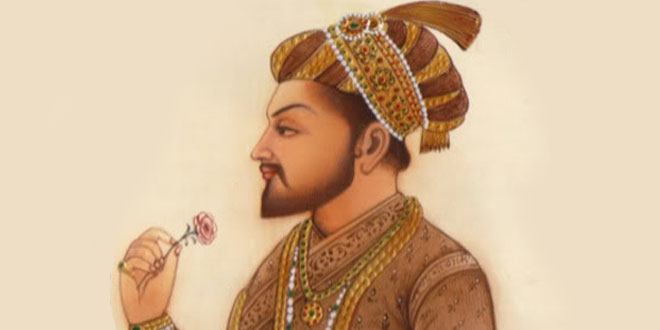Question: In what ways did Europeans interact with the rulers of the Mughal Empire? Describe the influence of the British in Jahangir’s court.
Answer: During the reign of Jahangir, a number of Europeans, like the Portuguese, the British and the Dutch, had began to make their presence felt in India and other countries bordering the Indian Ocean. As their economic interests began to clash, the Portuguese started attacking Mughal ships. To retaliate and put a check on them, Jahangir began to support their rivals, the British and the Dutch.
In 1608 CE, Captain William Hawkins arrived at Surat with a letter from King James I of Great Britain to emperor requesting permission to trade. He stayed at his court for three years as mansabdar. In 1614 CE, Sir Thomas Roe was sent by James I as the British ambassador to the court of Jahangir. He stayed on till 1618 CE, he received liberal trade concessions for the British. They were allowed to set up a factory at Surat. Sir Thomas Roe laid the foundation for the British East India Company’s trade.
Question: Explain how Aurangzeb’s Rajput, Deccan and Sikh policies led to the decline of the Mughal Empire.
Answer: Aurangzeb’s Policies led to many uprisings:
Rajput Policy: Aurangzeb tried to annex Rajputs kingdoms and waged several battles against them. As a result. Aurangzeb lost the loyalty and support of the Rajputs. He also lost money, time and many of his generals.
Deccan Policy: Aurangzeb spent 26 years of his life and reign in the Deccan, which he could neither control nor ignore. This brought him into direct confrontation with the rising power of the Marathas. First under Shaji and later under his son Shivaji, the Marathas grew in number and strength. Aurangzeb repeatedly tried to put an end to them, but in vain. Aurangzeb won the kingdom of Bijapur in 1681 CE and Golconda in 1687 CE. However he suffered heavy loss of soldiers and money.
Sikh Policy: The execution of the ninth Sikh guru, Guru Tegh Bahadur (1664-1675 CE) by Aurangzeb made the peace-loving Sikh take up arms. Under the 10th guru, Guru Gobind Singh, the Sikhs fought bitterly against Aurangzeb.
 Class Notes NCERT Solutions for CBSE Students
Class Notes NCERT Solutions for CBSE Students



BEST WEBSITE FOR STUDENTS TO GAIN KNOWLEDGE…
BEST WEBSITE FOR STUDENTS TO LEARN…
Good helping to the students